
7 Excellent Books Released In 2020 By African Women Of Colour
2020 has developed a reputation as the most ‘strange, uncertain, and unprecedented’ time period in our recent past. However, something less surprising and completely warranted to have come out of this year has been a growing global appreciation for the excellent writing by African authors of colour and women in particular. One testament to this is the shortlist for this year’s prestigious Booker Prize award which includes two novels by African women of colour – This Mournable Body by Tsitsi Dangarembga and The Shadow King by Maaza Mengiste. To extend this recent celebration of African literature, here is a list of some of the outstanding fiction and nonfiction published by African women of colour this year.
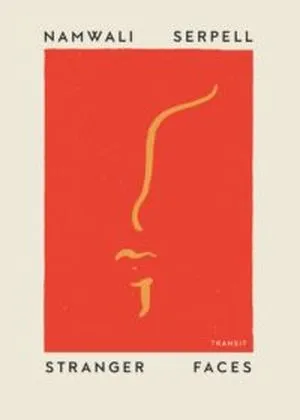
Stranger Faces by Namwali Serpell
Zambian born author and scholar Namwali Serpell has made literary headlines over the past year, winning numerous awards for her novel The Old Drift, which was released in 2019. Serpell is dazzling readers a little differently in 2020 with her new narrative nonfiction essay collection Stranger Faces, which has recently been published as part of the ‘Undelivered Lectures’ series from the publishing house Transit books. In these essays, Serpell interrogates human preoccupations with the face by considering different notable faces that have appeared in popular culture over the past few centuries. The collection surveys an interesting set of familiar and unfamiliar faces including ones which are racialized, digitised, and non-human, and ranges from discussions on Alfred Hitchcock’s Psycho to the advent of emojis. Serpell considers how humans read and respond to these faces and, in turn, what our interactions with faces reveals about us.
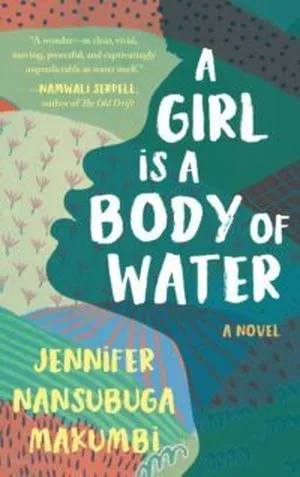
A Girl is A Body of Water or The First Woman by Jennifer Nansubuga Makumbi
A Girl is a Body of Water (published as The First Woman in UK and other countries) is the newest offering from Ugandan author Jennifer Nansubuga Makumbi. In this novel Makumbi presents a moving tale about a girl’s pursuit to establish her identity against a backdrop of the human tragedy and social unrest that prevails in late 20th century Uganda following Idi Amin’s rise to power. The young girl, Kirabo, has been fostered by strong women in her family and community, but as a teenager she finds herself wanting to learn about her absent mother. She undertakes a search for belonging and with the aid of Nsuuta, a witch in her community, Kirabo tries to make sense of her emergent womanhood and her desire to know her roots. The allusions to Ugandan culture, oral narrative traditions, and national history that Makumbi threads through the novel frame this coming-of-age story as a moving narrative about the shaping of a modern Ugandan woman’s subjectivity.
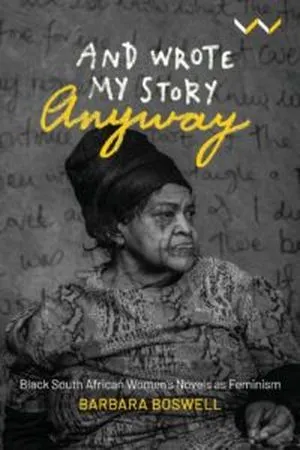
And Wrote My Story Anyway by Barbara Boswell
South African scholar and novelist Barbara Boswell has a distinct approach to literature that demonstrates how intertwined the personal, political, and intellectual imperatives of writing can be. This approach is reflected in Boswell’s new book And Wrote My Story Anyway, which is an exciting exploration of the feminist theory that is created in fiction written by South African women of colour, including internationally renowned novelists and poets such as Miriam Tlali, Zoë Wicomb, Yvette Christiansë, and Kagiso Lesego Molope. By considering how these writers highlight the lived experiences of South African women of colour, especially in the context of apartheid and in the country’s transition towards post-apartheid democracy, Boswell shows how their creative work becomes a site of knowledge production. Specifically, this body of literature produces a Black South African feminist discourse that confronts racist and patriarchal ideologies and celebrates the powerful voices of Black South African women writers.
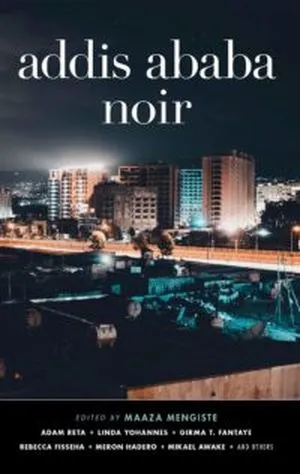
Addis Ababa Noir edited by Maaza Mengiste
Maaza Mengiste is one of the two renowned African authors to have made it onto the shortlist for this year’s Booker Prize for her novel which was published last year. The Ethiopian American author has edited and written for another exciting publication this year: Addis Ababa Noir, a new installment in the Noir Series by independent publishing house Akashic Books. The book presents 14 new short stories by writers from Ethiopia and the Ethiopian diaspora, including tales from the likes of Meron Hadero, Rebecca Fisseha, Linda Yohannes, and Mengiste herself. These narratives cover an array of themes around political and cultural identity in the region and experiences of life after the Ethiopian revolution. Notwithstanding the fixed presence of real parts of the capital city at the heart of these stories, the noir crime genre allows these tales to take on an eerie timeless and placeless quality that captures the character of this African hub in intriguing ways.
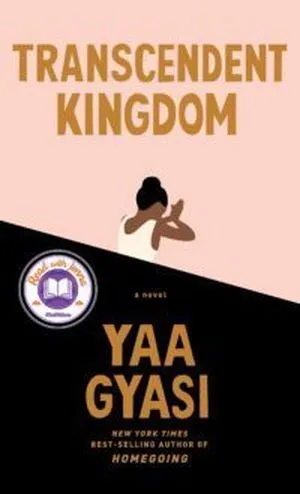
Transcendent Kingdom by Yaa Gyasi
Ghanain American author Yaa Gyasi made her mark on the global literary scene in 2016 with her successful debut novel Homegoing, which was a poignant portrayal of colonial history presented through the lives of two sisters. In her new novel, Transcendent Kingdom, Gyasi reimagines the tropes of family and African identity from her earlier work. The narrative is centred on Gifty, a Stanford neuroscience PhD student whose research interests are linked to the experiences of trauma she has seen in her family as a result of loss and depression. As Gifty tries to navigate her personal circumstances she finds herself drawn to the Christian faith of her childhood which offers her solace and an alternative means for engaging with her reality. The novel compellingly speaks to the struggles of African diasporic identity, mental health, and the relationship between knowledge and spirituality that develops on the path to peace.
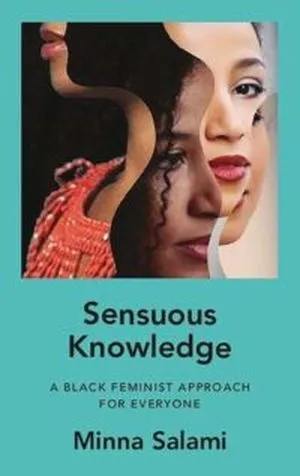
Sensuous Knowledge by Minna Salami
Nigerian Finnish and Swedish writer Minna Salami is a feminist activist who has spoken to the dire need for Afro-centric theories of feminism. In her award-winning blog, “MsAfropolitan”, Salami sheds light on histories of African feminist movements, reflects on the continued injustice against African women, and outlines what an African based feminism might look like by discussing strategies for empowerment. In her new book, Sensuous Knowledge, Salami presents a collection of essays that consolidates her work to date on how to harness aspects of African identity and culture in order to correct injustices produced by racism and gender discrimination. Through engaging with the ideas and practices of various Black feminist icons, from Audre Lorde to Beyoncé, Salami presents a contemporary and accessible manual for how to unlearn practices of patriarchy inherent in our societies and to start imagining a new feminist future.
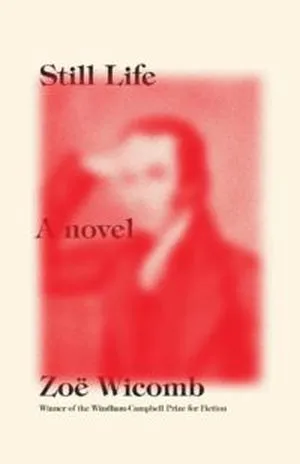
Still Life by Zoë Wicomb
South African born author Zoë Wicomb is something of a literary institution in South Africa. Wicomb has written some of the country’s most profound and poetic literature, including books like You Can’t Get Lost in Cape Town (1987) and Playing in the Light (2006). In both her fiction and nonfiction, Wicomb presents narratives that illustrate experiences of oppression in apartheid South Africa, telling rich and complex stories that reflect on racism, national belonging, as well as gender and political subjectivity. Her forthcoming novel Still Life is the story of an author who embarks on an unexpected, fantastical journey through colonial history as she attempts to write on the life of South African-Scottish poet Thomas Pringle, accompanied by unassuming characters like Pringle’s adopted black son Hinza and Sir Nicholas Green who is inspired by Nick Green from Virginia Woolf’s Orlando.













